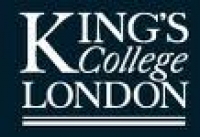






As a dental student at King's you would be taught by internationally renowned staff at an institution that combines teaching and research at some of the country's most famous teaching hospitals: Guy's, King's & St Thomas'. The Dental Institute was awarded the highest scores in all six areas of assessment when the Quality Assurance Agency carried out a subject review in 2000, with an overall score of 24/24 being awarded. It received a 5-star rating for Research in the 2001 Research Assessment Exercise (the highest national rating). On the basis of these assessments, the Dental Institute can claim to be the best in the country. The King's dental degree programme, in line with General Dental Council recommendations, incorporates the latest thinking in dental education, early clinical exposure, an emphasis on ideas as well as facts, integrated teaching of all subjects with an emphasis on a systems approach, and a dimension of choice of special subjects by the student. The integrated nature of the programme means that basic science teaching will relate to clinical practice and clinical teaching will be underpinned by scientific understanding. You will have contact with patients from the first few weeks of the first year and will be encouraged to assume an appropriate level of responsibility for patient care at an early stage. The programme emphasises whole patient care, which implies consideration of the patients total dental and medical needs, rather than just the provision of items of treatment. Most of the teaching is carried out in small groups where students and staff get to know each other well. The fact that the Dental Institute is the largest in the country with a total intake (for all programmes) of 164 students brings many advantages, including expertise in all areas of dentistry.
| Number | Duration |
|---|---|
| 5 | year |
A variety of career pathways are open to new dental graduates. The final career for many graduates is general practice, although a minority may aim to be a consultant in the hospital dental service, a senior clinical academic in a teaching hospital, or a specialist practitioner. Invariably newly qualified graduates will enter practice by way of a vocational training scheme. Vocational Dental Practitioners (VDPs) work in a general practice under supervision and have a day release course of lectures and demonstrations building on the undergraduate degree and giving instruction in all aspects of practice management. After this year, successful VDPs can begin work as an associate in a practice, later starting or purchasing their own practice. A further group of newly qualified graduates may enter the community dental service where the emphasis is on the prevention of dental problems in the community and looking after priority groups such as those with medical problems, the elderly or young children.